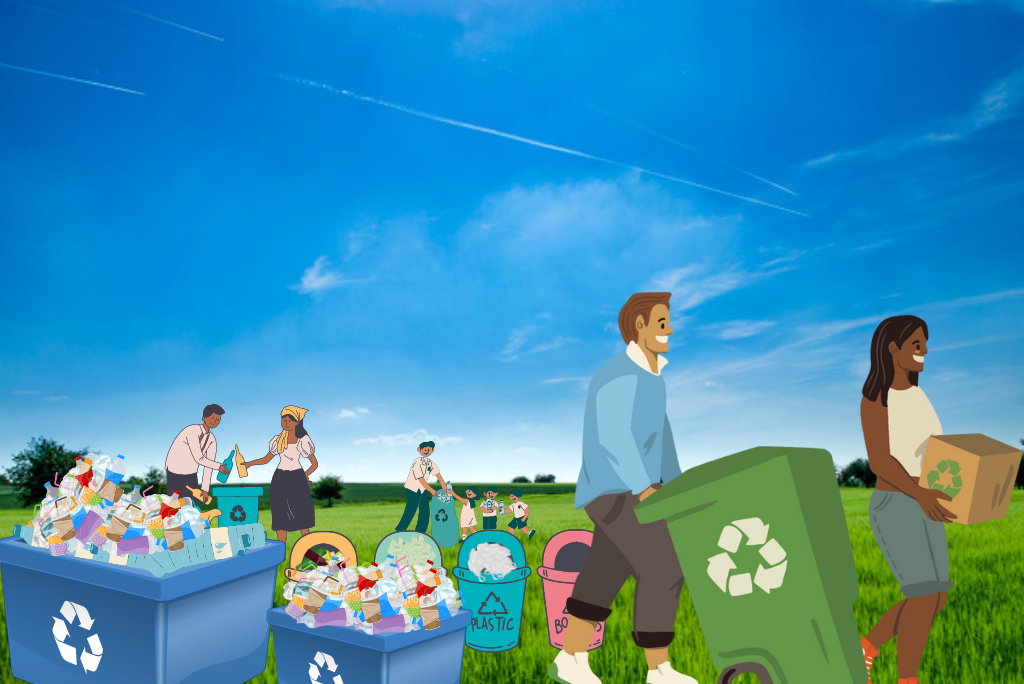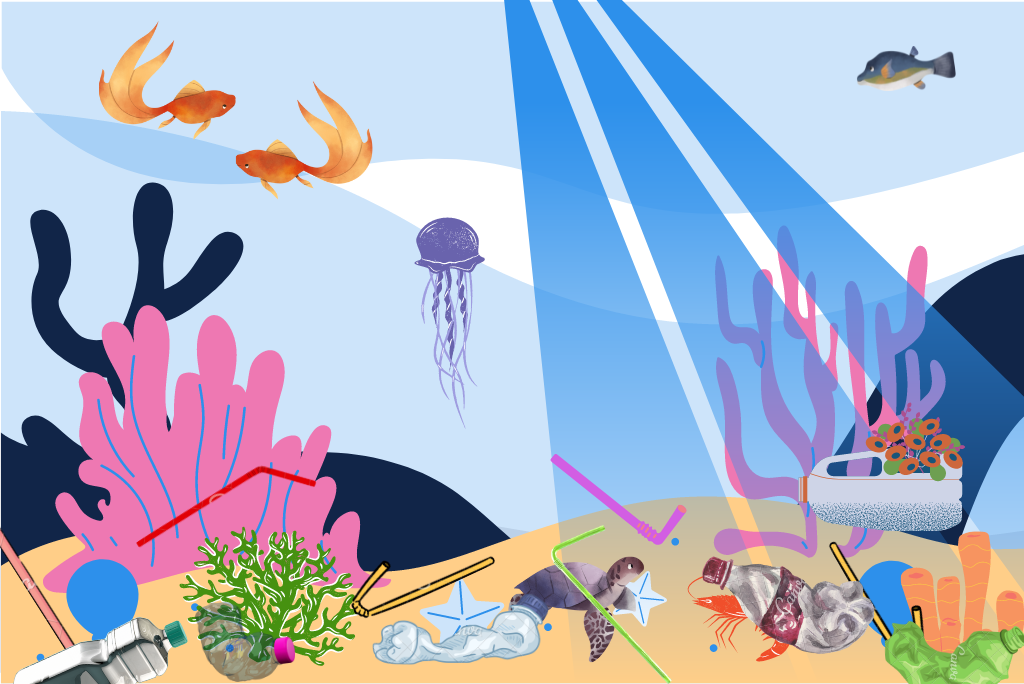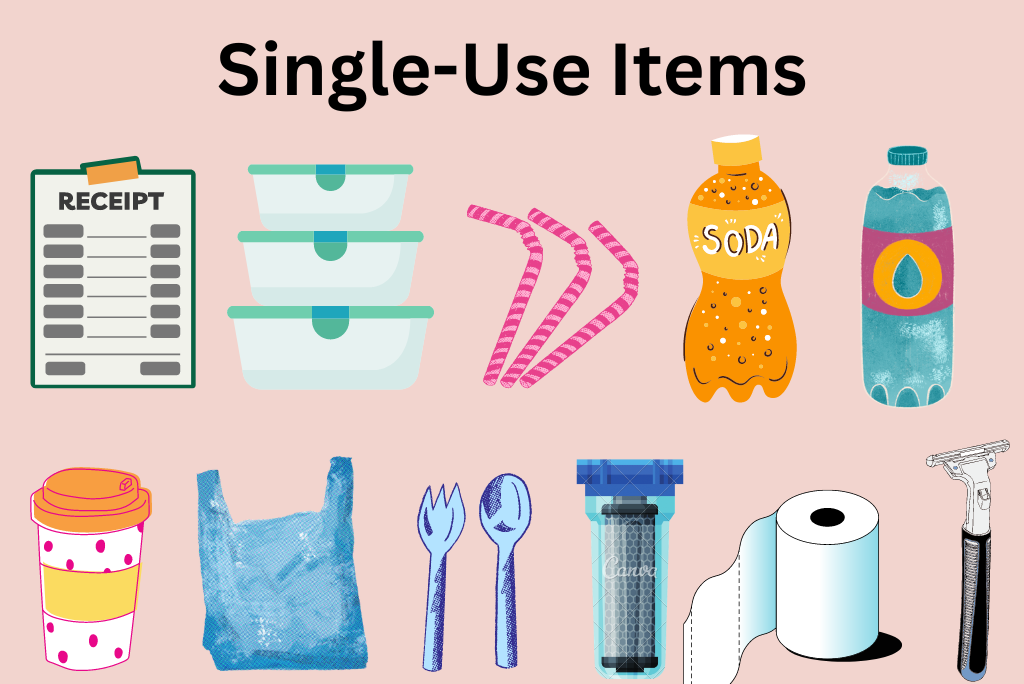
Sustainability Shift: Exploring Inflation’s Effect On 1 In 3 Americans
As we live in a world of burgers and SUVs, where convenience often trumps sustainability, a fascinating survey has revealed a glimmer of green hope! A grand stage with 2,000 people ready to tell all. The suspense builds as we wait for the verdict: Have the eco-warriors multiplied?
The crowd boasts a new, leafy lifestyle in 2023 as opposed to their previous indifference to the environment in 2022. 34% of the bunch insist on going green. Are we witnessing the recycling revolution? In addition, 32% stand their ground, refusing to budge from their sustainable zone, declaring that their habits are as unshakable as a mountain. Kudos to the consistent crusaders!
Think of a swirling vortex of uncertainty at the center of the stage. Just when we thought we had the story pegged, a twist emerges. So hold on to your reusable water bottles, because amidst the lingering pandemic clouds, guess what’s taking front and center? It’s not just the looming fear of germs anymore; it’s the wallet-crunching inflation beast! Inflation, that sneaky chameleon, is entering the limelight, impacting one in three sustainability enthusiasts.

As face masks and hand sanitizers become a thing of the past, it’s the price tags and grocery bills that are stealing the show.

A grand symphony of opinions orchestrated by OnePoll, at the behest of Hydro Flask, launched its brand-new Trade-in Program. A program that promises not just a mere exchange, but a dance with sustainability itself!
The Timeless Chorus Of Environmental Sympathy
It is now time to marvel at human concern for this blue and green sphere we call home. 79% of those surveyed stand shoulder to shoulder, hearts brimming with active concern for the well-being of our environment. When confronted with a global puzzle, how can unity be so powerful?
But cast your gaze back to the archives of 2021, where 75% of the respondents nodded in agreement with the very same environmental anthem. A mere 4% difference, you say? But the ones who stand like mighty oaks, those who “strongly agree,” have kept the balance, steady at 44%. It’s as if their convictions are the north star guiding us through the cosmic sea of opinions.

In 2021, 48% of these fine people pledged their allegiance to recycling, promising to contribute to their bottles and cans the gift of reincarnation. Fast forward to our current chronicle, and voilà! The numbers have climbed the ladder of commitment, reaching 56%. Is this the evolution of thought, the blossoming of eco-resolution?
Sustainability On The Menu
Are you aware of the grand environmental shindig that went down last year? It turns out that the hippest trendsetters were ditching the dull disposables and cozying up to reusables like they were the hottest material of the century! 51% of the cool crowd decided it was time to break up with single-use items and embrace the reusable revolution. Who needs one-night-stand plastics when you can commit to a long-lasting relationship with your trusty water bottle?
43% of earth-conscious individuals embark on a gastronomical odyssey, bidding farewell to their carnivorous cravings and embracing the lush world of plant-based munchies! 🥦🍔 It’s a foodie’s dream come true – the prince and the pauper, except the pauper is a juicy beef burger and the prince is a seasoned chickpea patty. Veggies are so suave!

44% Opt For Elegance Over Plastic
Don’t throw out your tote bags, because the plastic predicament is getting a makeover too! 44% of the population decided that plastic waste was passé, tossing it aside for a life of elegance and sophistication. Wouldn’t it be nice to live in a world where straws don’t clog the oceans, and plastic bottles are a distant memory?
But don’t let those percentages fool you – this is no mere fleeting trend. Just like a Hollywood sequel living up to the hype, these eco-friendly behaviors made a triumphant return from their 2021 debut. It’s like watching your favorite characters return for an encore, armed with even more determination to save the planet!

We humans are expert worriers, aren’t we? The drama this year centered on a spectacular showdown of concerns. “Climate change or global warming” may have been dethroned from its 2021 ruling position at 57%, but rest assured, it’s still a major contender at a solid 48%.
And the new kings on the block? Give it up for the heart-pounding “air, water, and land pollution” at 53% and the mysterious “deforestation and logging” at 48%! It’s a battle royale between environmental concerns, each vying for the crown of our collective anxiety.
“As seen in this data, pollution continues to be a growing concern in our country and we know that wasted products are a large contributor to this issue,” said Indigo Teiwes, Corporate Responsibility Director for Home & Outdoor, Helen of Troy, parent company of Hydro Flask. “In response, we’ve seen a number of brands introduce different recycling, upcycling, and product circularity programs. HAccessible resources and programs such as these help consumers feel more empowered to not only address their concerns but feel like they’re making a difference.”
Sustainability Resurgence: Eco-Friendly Behaviors Rekindled
The year is 2023, and 78% of the populace has agreed to the idea that if every soul out there were to put in the bare minimum effort – you know, like nailing the art of recycling or cradling a reusable water bottle – we might just wield the power to salvage our dear planet from the clutches of climate doom.
The path to an eco-haven is filled with obstacles and thorns, as revealed by secrets whispered from 2021. There, 67% confessed to their obsession with single-use items, all to dodge COVID-19. The pandemic reshaped habits faster than a wizard’s wand flick, making reusable items seem like stuff from the past.
TOP TEN MOST USED SINGLE-USE ITEMS
- Paper receipts – 48%
- Delivery containers – 42%
- Plastic straws – 42%
- Water or soda bottles – 42%
- To-go beverage cups – 41%
- Plastic bags – 39%
- Plastic utensils – 37%
- Water filtration canisters – 35%
- Paper towels – 30%
- Disposable razors – 29%

Leapfrog to the present – a fresh chapter. Now, 56% are confident that they’ve hopped onto the sustainability bandwagon since the pandemic’s grand entrance. But in this bustling arena of opinions, 25% sulk in the shadows, admitting they’ve slipped down the eco-warrior ladder. It’s a seesaw battle of sustainable intentions and a sight to behold!
Inflation’s Unexpected Eco-Alliance
Guess what else joins the arena? Inflation! The financial juggernaut influences 49% of these eco-champions. Who knew market forces could help Mother Earth?
97% of the participants have an abundance of reusable items stashed away in their domestic spaces. It’s a hoarder’s dream of durable food containers (47%), gallant grocery bags (46%), enchanting drinking straws (46%), and trusty water bottles (46%).
TOP FIVE MOST POPULAR REUSABLE ITEMS
- Water bottles – 42%
- Insulated bottles/flasks – 35%
- Drinking straws – 34%
- Tupperware or food storage containers – 34%
- Produce bags – 33%
But these aren’t just objects; they’re symbols of hope, vessels of change! A loud 47% proclaim that reusable items are the protective cape we need. And there’s more to this – a whopping 34% find these marvelous items are lighter on their coin purses, while 31% revel in the art of simplicity, and 40% love the idea of cost-effectiveness.
“Not only is buying single-use plastic water bottles 2,000 times more expensive than drinking water from the tap, but switching to reusable items is one of the easiest ways to reduce your footprint,” said Larry Witt, President of Home & Outdoor, Helen of Troy, parent company of Hydro Flask. “Consumers can help eliminate single-use plastic by opting for a reusable bottle to refill over and over.”
Survey Methodology
This random double-opt-in survey of 2,000 general population Americans was commissioned by Hydro Flask on April 27, 2023. It was conducted by market research company OnePoll, whose team members are members of the Market Research Society and have corporate membership to the American Association for Public Opinion Research (AAPOR) and the European Society for Opinion and Marketing Research (ESOMAR).




